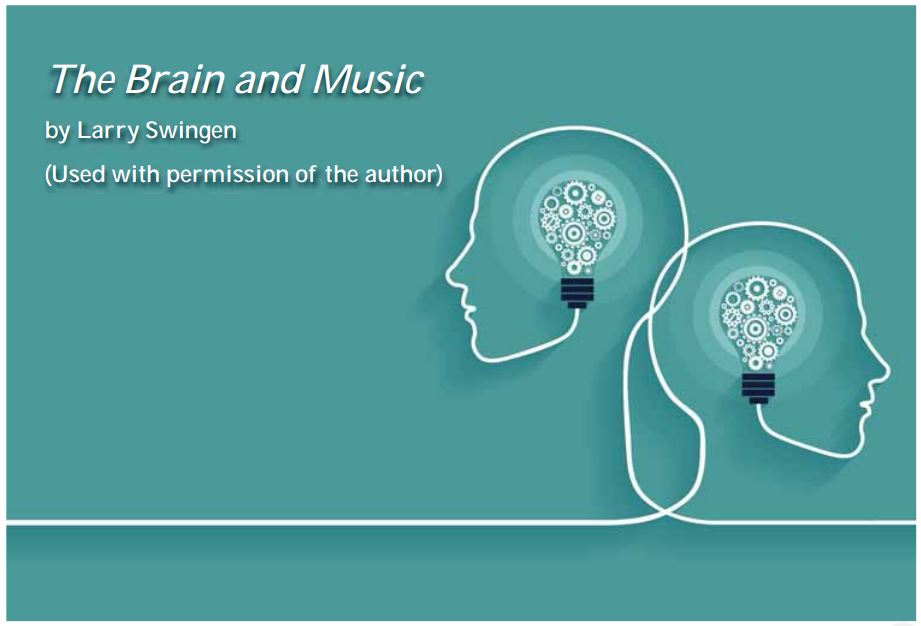
ChorTeach is ACDA’s quarterly publication for choral conductors and teachers at all levels. It is published online, and each issue contains four practical articles. If you are not already a member of ACDA, you can join and receive access to ChorTeach online. Below is an excerpt from an article written by Larry Swingen appearing in the Fall 2019 issue.
_____________________________________
Because of all the recent research on the human brain and how music and the brain relate, let us ponder what actually happens in our brain when we perform, listen to, or compose music. Howard Gardner states that music is one of eight intelligences or capabilities of our brain.
We have an innate musical ability. It is remarkable to consider all the areas of the brain that are activated during musical pursuits. Music is involved in various levels of our brain from the early reptilian brain to the more recently developed frontal lobe. Different parts of music are tied to many different areas in the brain.
For example, when we are sight-singing, our brain is more active than it is for most other activities. The amount of information available is staggering. The larger picture involves how we take in this information and apply it to our day-to-day teaching and our own learning. In the book “The Owner’s Manual for The Brain” by Pierce Howard, music is historically used for entertainment and communication. Dr. Howard claims there are three newly evolved roles for music that include medicinal, facilitative, and mood altering. Howard cites studies in which epileptic patients show a decrease in spiking after listening to Mozart. He cites studies that show Alzheimer’s patients improve paper folding tasks after listening to Mozart. He believes that music does not have a specific location in the brain but is a by-product of other evolved areas. Play a variety of music as your students enter your room, while they are working on a theory assignment, or while they are stretching during warm-ups. Experiment with them. Play Mozart.
As musicians, we know about other important roles music plays for us and our students. Singing in a choir allows us the opportunity to create beauty, to connect our heart and brain to express emotions through interesting and complex music. These are very valuable reasons to be involved in music. As we prepare for concerts and music festivals, we can get lost in the pitches and rhythms of the music. Continue your efforts to get to the heart and soul of the music with your students. Ask them what they think the music is about or how it makes them feel. Ask them what personal experiences they have had that relate to the music they are rehearsing.
For teachers with young children or grandchildren, Howard suggests encouraging young children to sing by themselves, sing with you, and sing with others. This is no surprise. We’ve been preaching and doing this for a long time.
If your child shows an interest in piano or violin, get him/ her going on those instruments around age three. The optimum window for learning an instrument is from age three to ten. Children have the best chance of developing perfect pitch with early exposure to music. Know that repetition is crucial in establishing musical building blocks. Children love repetition. Use repetition with your high school students. Let them know it is good for them.
__________________
Read more in the Fall 2019 issue at acda.org/chorteach.


Leave a Reply
You must be logged in to post a comment.